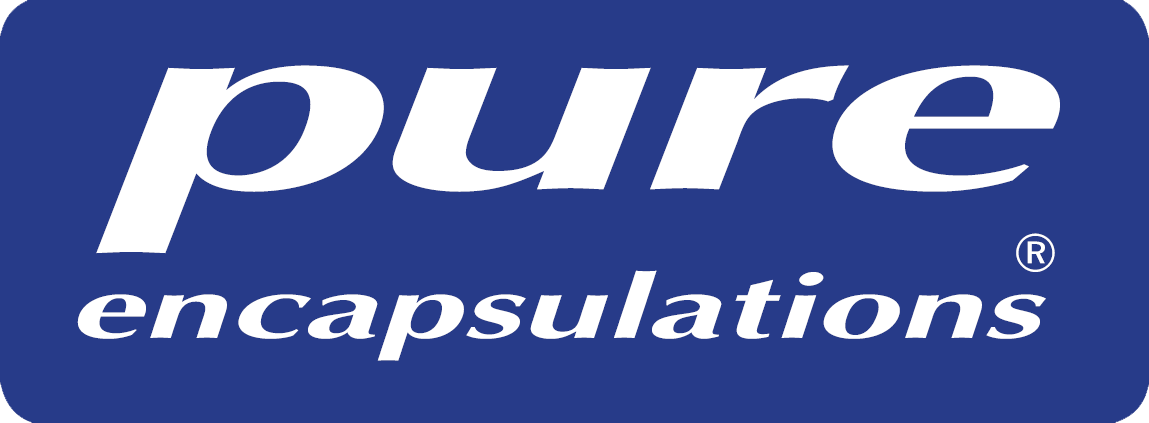
Top 5 Nutrients for Immune Health
It is impossible to talk about wellness without considering your immune health. While the phrase wellness can mean something different to everyone, at its core being well is about nourishing the body so you can thrive at all stages of life. Your immune system is the foundation that supports that journey.
Immune cells work hard every day, constantly making decisions and taking action to protect you against environmental threats and pathogens. But lifestyle factors, especially nutrition, play a huge part in how well it functions.
If wellness is a priority for you, learning about these five critical nutrients is an essential first step.
How does your immune system keep you healthy?
A well-functioning immune system means that your body can defend itself against anything that could adversely affect your health.
The immune system is comprised of two parts:
- Innate: The innate immune system acts as a first responder to protect you against perceived threats like viruses, bacteria, or toxins. While it cannot differentiate between various pathogens, it works by sending a message to your immune cells to respond quickly to take care of the problem.
- Adaptive. The adaptive immune system kicks in after recognizing specific threats and responds with targeted antibodies.
A simple way to think about the adaptive immune system is to consider children who attend daycare early. The first few months are often miserable as they pick up every bug they are exposed to. Over time, their immune system wakes up, recognizes the same germs or antigens, and can fight back. This is the adaptive (with help from the innate) immune system at work.
Both branches of your immune system depend on proper nutrition, especially micronutrients, to function optimally. Research clearly tells us that less-than-optimal nutrition status can lead to a compromised immune system.
How can you support your immune system naturally?
While this list is not exhaustive, here are five crucial nutrients that help you maintain a healthy immune system.
- Zinc. If you have ever woken up with a sense of feeling exceptionally run down or that your body is trying to fight something off, consider reaching for zinc. Supplemental zinc can help you feel better faster if taken at that first sign, according to research.
An essential nutrient for a well-functioning and responsive immune system, zinc supports optimal immunity while promoting healthy inflammation levels. It also acts as a critical cofactor for hundreds of enzymatic reactions, many related to immunity.
Studies suggest that people with the lowest zinc status see the greatest benefit from supplementation, but everyone can support their immune health with zinc. You can start by including rich sources of zinc in your diet, such as:
-
- Oysters (by far the richest source with over ten times more zinc than other sources)
- Meat
- Eggs
- Legumes
However, if you feel a funny tickle in your throat, short-term zinc supplementation helps you get over it quickly.
- Vitamin C. Vitamin C is probably the most well-known remedy for immune health. It’s an essential water-soluble vitamin (meaning the body doesn’t store it and will excrete excess in urine) that acts as an important antioxidant in the body.
Since vitamin C has become a go-to for immune health, there’s a lot of research examining its efficacy. Even with all the studies conducted, results are mixed on exactly who benefits the most from supplementation, but vitamin C does appear to help decrease symptoms quickly if you take it as soon as you aren’t feeling well. It may help your immune system function efficiently, even reducing the frequency of catching something by half when taken preventatively.
Vitamin C is easy to obtain in a healthy diet rich in fruits and vegetables. Some of the highest sources include:
-
- Citrus
- Kiwi
- Leafy greens
- Cruciferous veggies like cauliflower, broccoli, or cabbage
- Bell pepper
- Strawberries
- Guava
It is always a good idea to get your nutrients from food first, but supplementation may add additional benefits as noted above.
- Vitamin D. For the last few years, vitamin D is having its moment in the sun. From bone formation to cell development, vitamin D is a critical nutrient for many aspects of health, including your immune system. Receptors for vitamin D are found on your immune cells, suggesting that vitamin D may positively influence their responsiveness.
Studies on vitamin D show significant improvements in immune health with supplementation, especially for those with lower vitamin D status. A vitamin D deficiency may mean you are more likely to pick up a bug than someone with normal levels. Even infants born to moms who supplement with vitamin D can see a benefit, with maternal supplementation tied to healthy immune responses later in life.
Unlike many other nutrients, it is not easy to get vitamin D from food (unless the food has been fortified with vitamin D in processing like milk or orange juice). Fatty fish, egg yolks, liver, and beef all have small amounts but likely not enough.
The ideal way to get enough vitamin D is through exposure to sunlight, where the interaction with UV light converts the hormone in your skin to the active vitamin. But with so many factors influencing your ability to properly make and absorb it (including the color of your skin, sunscreen use, time of year, and geographical location), supplementation is often necessary.
- N-Acetyl-L-Cysteine (NAC). NAC is an amino acid that acts as a precursor to glutathione, your body’s master antioxidant. Antioxidants help protect the body against free-radical damage while supporting a healthy inflammatory response. NAC may support a strong immune response by affecting antioxidant activity in your body and influencing inflammation regulation.
Inflammation is a normal part of your immune response, acting as a distress signal from immune cells that eventually resolves with healing and repair. It only becomes a problem when the inflammatory signal is stuck in the on position, and the body is constantly revved up. NAC may help the body calm down this over-activation to cool down the inflammatory response.
- Selenium. Another powerful antioxidant, selenium is a critical nutrient for your immune system, supporting reductions in oxidative stress and inflammation in the body. It may also aid in turning your immune cells on so they can get to work, especially macrophages, a type of immune cell that destroys microorganisms and removes them from the body.
People with suboptimal amounts of dietary selenium may have impaired immune responses. For example, research suggests that low levels of selenium can increase susceptibility to certain conditions related to inflammation because of the role it plays in managing inflammatory chemical messengers.
Selenium can be obtained through diet, with the richest sources being organ meats, brazil nuts, and seafood. You can also find selenium in grains, bread, and meat. However, the amount of selenium present in foods can vary depending on the soil content where the product or animal’s food was grown. Supplemental selenium may be indicated to support the immune system to bring levels up to optimal amounts.
The Takeaway: Nutrients and your immune system
Lasting wellness requires an understanding and appreciation of the immune system. Like any system in our body, immunity is influenced by many lifestyle factors, especially our diet.
Many nutrients play a role in the development, functionality, and responsiveness of your immune system. While making sure your diet is rich in foods that provide these nourishing micronutrients is a natural first step, supplementation can provide added value in some cases, especially if you need higher doses or have low levels of specific nutrients. A conversation with your healthcare practitioner, along with baseline lab values, can help you determine if supplementation is right for you.
.
.
.
.
.
[i] “Features of an Immune Response | NIH: National Institute of Allergy and Infectious Diseases.” Accessed March 18, 2021. https://www.niaid.nih.gov/research/immune-response-features.
[ii] Biron, Christine A. “Chapter 4 – Innate Immunity: Recognizing and Responding to Foreign Invaders—No Training Needed.” In Viral Pathogenesis (Third Edition), edited by Michael G. Katze, Marcus J. Korth, G. Lynn Law, and Neal Nathanson, 41–55. Boston: Academic Press, 2016. https://doi.org/10.1016/B978-0-12-800964-2.00004-5.
[iii] Moticka, Edward J. “Chapter 2 – Hallmarks of the Adaptive Immune Responses.” In A Historical Perspective on Evidence-Based Immunology, edited by Edward J. Moticka, 9–19. Amsterdam: Elsevier, 2016. https://doi.org/10.1016/B978-0-12-398381-7.00002-2.
[iv] Maggini, Silvia, Adeline Pierre, and Philip C. Calder. “Immune Function and Micronutrient Requirements Change over the Life Course.” Nutrients 10, no. 10 (October 17, 2018). https://doi.org/10.3390/nu10101531.
[v] Hemilä, Harri., JRSM Open 8, no. 5 (May 2017): 2054270417694291. https://doi.org/10.1177/2054270417694291.
[vi] Jafari, Alireza, Zeinab Noormohammadi, Mohammadreza Askari, and Elnaz Daneshzad. “Zinc Supplementation and Immune Factors in Adults: A Systematic Review and Meta-Analysis of Randomized Clinical Trials.” Critical Reviews in Food Science and Nutrition, December 24, 2020, 1–19. https://doi.org/10.1080/10408398.2020.1862048.
[vii] Kuźmicka, Weronika, Aneta Manda-Handzlik, Adrianna Cieloch, Agnieszka Mroczek, Urszula Demkow, Małgorzata Wachowska, and Olga Ciepiela. “Zinc Supplementation Modulates NETs Release and Neutrophils’ Degranulation.” Nutrients 13, no. 1 (December 26, 2020). https://doi.org/10.3390/nu13010051.
[viii] “FoodData Central.” Accessed March 19, 2021. https://fdc.nal.usda.gov/fdc-app.html#/?component=1095.
[ix] Haase, Hajo, and Lothar Rink. “Multiple Impacts of Zinc on Immune Function.” Metallomics: Integrated Biometal Science 6, no. 7 (July 2014): 1175–80. https://doi.org/10.1039/c3mt00353a.
[x] Health, National Research Council (US) Committee on Diet and. National Academies Press (US), 1989. https://www.ncbi.nlm.nih.gov/books/NBK218756/.
[xi] Ran, Li, Wenli Zhao, Jingxia Wang, Hongwu Wang, Ye Zhao, Yiider Tseng, and Huaien Bu. BioMed Research International 2018 (July 5, 2018). https://doi.org/10.1155/2018/1837634.
[xii] Douglas, R. M., H. Hemilä, E. Chalker, and B. Treacy. The Cochrane Database of Systematic Reviews, no. 3 (July 18, 2007): CD000980. https://doi.org/10.1002/14651858.CD000980.pub3.
[xiii] “FoodData Central.” Accessed March 19, 2021. https://fdc.nal.usda.gov/fdc-app.html#/?component=1162.
[xiv] Aranow, Cynthia. “Vitamin D and the Immune System.” Journal of Investigative Medicine : The Official Publication of the American Federation for Clinical Research 59, no. 6 (August 2011): 881–86. https://doi.org/10.231/JIM.0b013e31821b8755.
[xv] Zisi, Dimitra, Anna Challa, and Alexandros Makis. Hormones (Athens, Greece) 18, no. 4 (December 2019): 353–63. https://doi.org/10.1007/s42000-019-00155-z.
[xvi] Hornsby, Eve, Paul E. Pfeffer, Nancy Laranjo, William Cruikshank, Marina Tuzova, Augusto A. Litonjua, Scott T. Weiss, Vincent J. Carey, George O’Connor, and Catherine Hawrylowicz. “Vitamin D Supplementation during Pregnancy: Effect on the Neonatal Immune System in a Randomized Controlled Trial.” The Journal of Allergy and Clinical Immunology 141, no. 1 (January 2018): 269-278.e1. https://doi.org/10.1016/j.jaci.2017.02.039.
[xvii] “FoodData Central.” Accessed March 19, 2021. https://fdc.nal.usda.gov/fdc-app.html#/?component=1110.
[xviii] Holick, Michael F., Neil C. Binkley, Heike A. Bischoff-Ferrari, Catherine M. Gordon, David A. Hanley, Robert P. Heaney, M. Hassan Murad, Connie M. Weaver, and Endocrine Society. “Evaluation, Treatment, and Prevention of Vitamin D Deficiency: An Endocrine Society Clinical Practice Guideline.” The Journal of Clinical Endocrinology and Metabolism 96, no. 7 (July 2011): 1911–30. https://doi.org/10.1210/jc.2011-0385.
[xix] Aldini, Giancarlo, Alessandra Altomare, Giovanna Baron, Giulio Vistoli, Marina Carini, Luisa Borsani, and Francesco Sergio. “N-Acetylcysteine as an Antioxidant and Disulphide Breaking Agent: The Reasons Why.” Free Radical Research 52, no. 7 (July 3, 2018): 751–62. https://doi.org/10.1080/10715762.2018.1468564.
[xx] Dludla, Phiwayinkosi V., Sithandiwe E. Mazibuko-Mbeje, Tawanda M. Nyambuya, Vuyolwethu Mxinwa, Luca Tiano, Fabio Marcheggiani, Ilenia Cirilli, Johan Louw, and Bongani B. Nkambule. Pharmacological Research 146 (August 1, 2019): 104332.
[xxi] Hoffmann, Peter R., and Marla J. Berry. “The Influence of Selenium on Immune Responses.” Molecular Nutrition & Food Research 52, no. 11 (November 2008): 1273–80. https://doi.org/10.1002/mnfr.200700330.
[xxii] Aribi, Mourad, Warda Meziane, Salim Habi, Yasser Boulatika, Hélène Marchandin, and Jean-Luc Aymeric. PLOS ONE 10, no. 9 (September 4, 2015): e0135515. https://doi.org/10.1371/journal.pone.0135515.
[xxiii] Avery, Joseph C., and Peter R. Hoffmann. “Selenium, Selenoproteins, and Immunity.” Nutrients 10, no. 9 (September 1, 2018). https://doi.org/10.3390/nu10091203.
[xxiv] “FoodData Central.” Accessed March 24, 2021. https://fdc.nal.usda.gov/fdc-app.html#/?component=1103.


 Facebook
Facebook Instagram
Instagram